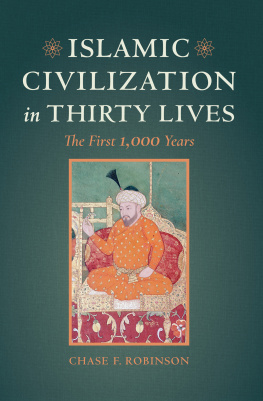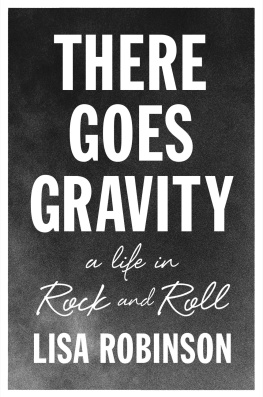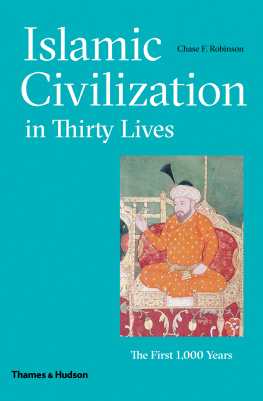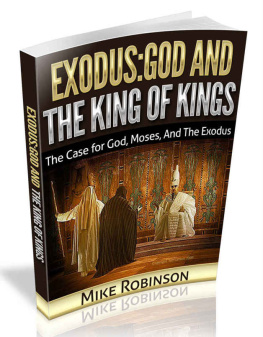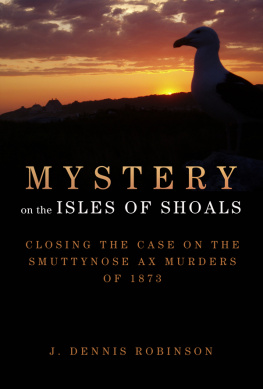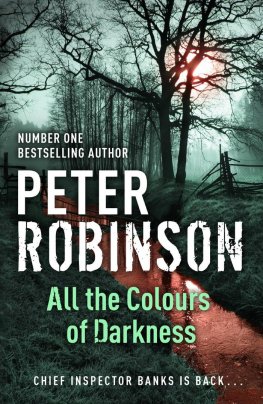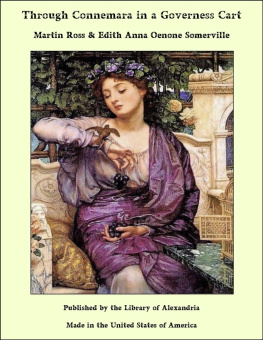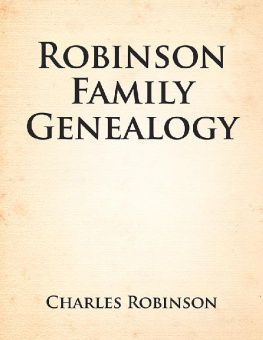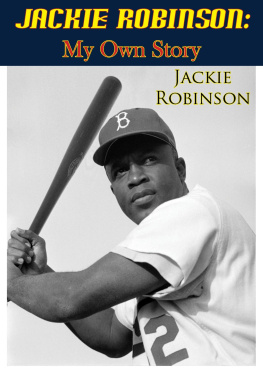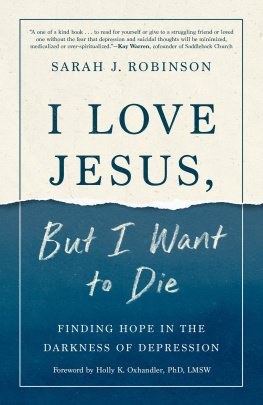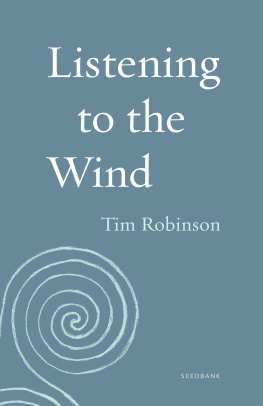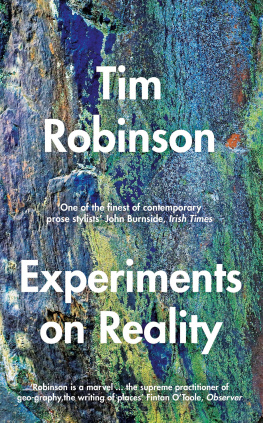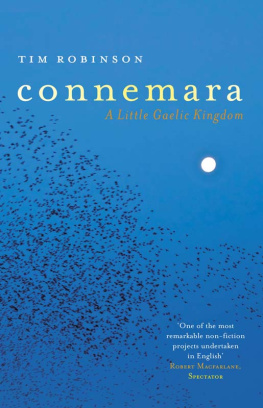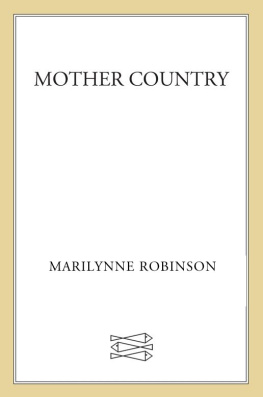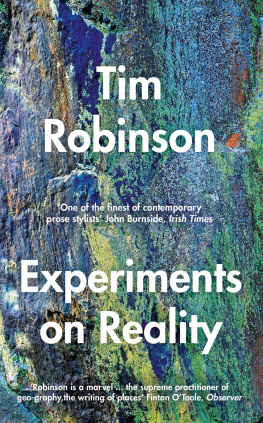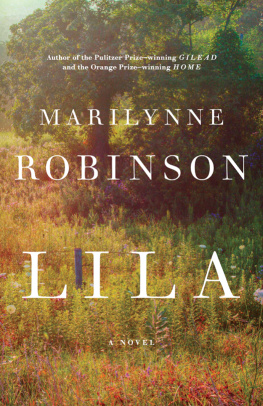By the same author
Stones of Aran: Pilgrimage
Stones of Aran: Labyrinth
Setting Foot on the Shores of Connemara
My Time in Space
Tales and Imaginings
Connemara: Listening to the Wind
Oilein rann: A Map of the Aran Islands, with a Companion to the Map
The Burren: A Map of the Uplands of North-West County Clare
Connemara: A One-Inch Map, with Introduction and Gazetteer
Connemara
The Last Pool of Darkness
TIM ROBINSON
PENGUIN
IRELAND
PENGUIN IRELAND
Published by the Penguin Group
Penguin Ireland, 25 St Stephens Green, Dublin 2, Ireland
(a division of Penguin Books Ltd)
Penguin Books Ltd, 80 Strand, London WC2R 0RL , England
Penguin Group (USA) Inc., 375 Hudson Street, New York, New York 10014, USA
Penguin Group (Australia), 250 Camberwell Road,
Camberwell, Victoria 3124, Australia (a division of Pearson Australia Group Pty Ltd)
Penguin Group (Canada), 90 Eglinton Avenue East, Suite 700, Toronto, Ontario, Canada M4P 2Y3
(a division of Pearson Penguin Canada Inc.)
Penguin Books India Pvt Ltd, 11 Community Centre,
Panchsheel Park, New Delhi 110 017, India
Penguin Group (NZ), 67 Apollo Drive, Rosedale, North Shore 0632, New Zealand
(a division of Pearson New Zealand Ltd)
Penguin Books (South Africa) (Pty) Ltd, 24 Sturdee Avenue,
Rosebank, Johannesburg 2196, South Africa
Penguin Books Ltd, Registered Offices: 80 Strand, London, WC2R 0RL , England
www.penguin.com
First published 2008
Copyright Tim Robinson, 2008
The moral right of the author has been asserted
All rights reserved
Without limiting the rights under copyright reserved above, no part of this publication may be reproduced, stored in or introduced into a retrieval system, or transmitted, in any form or by any means (electronic, mechanical, photocopying, recording or otherwise), without the prior written permission of both the copyright owner and the above publisher of this book
A CIP catalogue record for this book is available from the British Library
ISBN: 978-0-14-188972-6
Contents
Authors Note
While this volume makes no claims to being comprehensive in its treatment of the western coast of Connemara, it can be read as a more or less continuous journey from Killary Harbour in the north to Slyne Head in the extreme south-west, keeping a weather eye oceanwards all the way. I would like to thank the many people who gave me hospitality or accompanied me for a while by land or sea, and whose generosity made my recent re-exploration of these shores an unexpectedly social experience: Kieran Ryan, the late Canon and Mrs Willoughby, Dorothy Cross, Suzanne Cronin, Sheila ODonnell and John Tuomey, Michael Gibbons, Nicola and Hugh Musgrave, Giselher Kaule, Fidelma Mullane, Olwen Four, Sophie Faherty, Stephanie Brooks, Micheline Sheehy-Skeffmgton, Jacky King, Moya Cannon, Sabine Springer, Cilian Roden, Paul Mohr and Mirtn OMalley In Irish-language matters I have had the generous help of Liam Mac Con Iomaire. I also thank the following for permission to quote from their publications: Richard Murphy, Moya Cannon and the Carcanet Press, and Nancy Stenson and the Dublin Institute of Advanced Studies (School of Celtic Studies). Many other debts of gratitude are noted under Sources, at the end of the book. Once again I thank Brendan Barrington for his dependable editing. I lovingly dedicate the book to M.
TR
Preface
The Dark Night of the Intellect
In 1948 Ludwig Wittgenstein fled the seductions of Cambridge, where he was the unchallenged star of the Philosophy Department, to a friends holiday cottage in Rosroe, a fishing hamlet on a rugged peninsula separating the mouth of Killary Harbour from the bay of Little Killary. I can only think clearly in the dark, he said, and in Connemara I have found one of the last pools of darkness in Europe. His thought, a mental ascesis that matched his frugal and solitary existence there, was directed to an end, or rather to its own end. As he had written, The real discovery is the one that makes me capable of stopping doing philosophy when I want to. The one that gives philosophy peace, so that it is no longer tormented by questions which bring itself into question. The particular question preoccupying him at this time concerned the difference between seeing something, and seeing it as something. For instance, his farming neighbours see this strange figure in their landscape, and see him as a madman. There he stands, stock-still for minutes on end, staring at something he has drawn with his stick in the mud of the roadside. If I see this diagram (a roundish shape with a dot in the middle, and two long appendages on one side) first as a ducks head and bill, and then as a rabbits head and ears, not a particle of the mud has moved. What then has changed a mysterious mental picture I can show to no one else? The temptation, he writes, is to say I see it like this, pointing at the same thing for it and this. Hence arises a philosophical pseudo-problem. But by analysing how we use language in such cases, we can get rid of the idea of the private object. His neighbours, though, know a duck-rabbit when they see one, and forbid him to cross their land lest he frighten the sheep. Wittgenstein also lifts his eyes to the forbidden hills in search of examples of change-of-aspect:
The concept of seeing makes a tangled impression. Well, it is tangled I look at the landscape, my gaze ranges over it, I see all sorts of distinct and indistinct movements; this impresses itself sharply on me, that is quite hazy. After all, how completely ragged what we see can appear! And now look at all that can be meant by description of what can be seen.
Wie gnzlich zerrissen uns doch erscheinen kann, was wir sehen! what rippings and tearings in that zerrissen! And this landscape has indeed been torn. Great thicknesses of stone from ages whose names Silurian, Ordovician speak of ancient uncouth states of the earth have been broken through and thrust one over the other. Little Killary was gouged out of the fault-weakened rock by a glacier in the Ice Age. At the head of the bay the fault is visible as a deep notch in the hillside, forming a steep and narrow pass. People from the now-deserted village on the mountainside beyond used to bring their dead through this pass to an ancient ruined chapel, holy well and graveyard in a mossy wood by the shore. The way is steep and rough, and in winter more like a stream-bed than a path. On the one hand rises an angry-looking broken-down cliff; the slopes on the other are boggy and slippery. The chapel and holy well are dedicated to a St Roc, unknown to history, who legend says struggled with the Devil here. When the fiend tried to drag him off to Hell on a chain the saint resisted so violently that the chain cut deep into the hillside, creating the pass and funerary way. Thus geology reveals itself as mythology; both are systems of description of what can be seen in terms of what lies too deep to be seen. What were the temptations that chained the saint to the Devil? Are you thinking about logic or your sins? Bertrand Russell once asked, when the young Wittgenstein, then his pupil, had been striding up and down Russells room in silence for hours. Both! was the reply. Half a lifetime later in Ireland, logic was no longer the problem a tectonic shift separates the two phases of Wittgensteins thought but his self-lacerating effort to exorcize the delusions called up by everyday forms of speech was driven by the same passionate and intransigent ethic. In some future legendary reconstitution of the past it will be Wittgensteins wrestling with the demons of philosophy that tears the landscape of Connemara.
Next page


